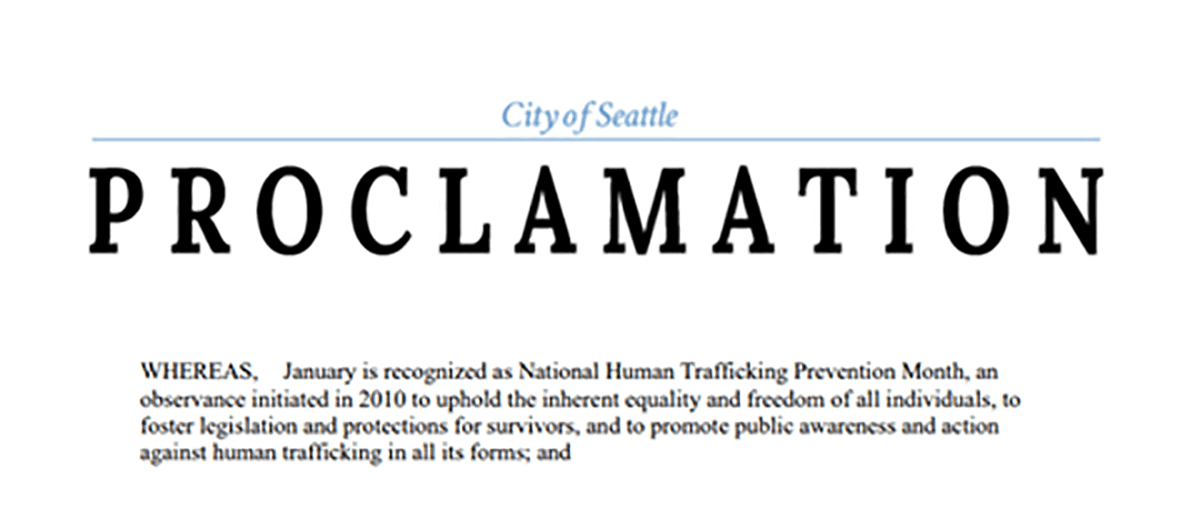
January was proclaimed “Human Trafficking Prevention Month in Seattle” by Mayor Bruce Harrell, signifying the City of Seattle’s commitment to combating this human rights issue that impacts an estimated 27.6 million people globally—including in every U.S. State and territory.
Human trafficking is defined as using force, fraud, or coercion to compel someone to perform labor or engage in a commercial sex act. The impact of human trafficking is disproportionately experienced by marginalized individuals including immigrants and refugees, women, people of color, youth, and the LGBTQ+ community. Further, people subjected to abuse, violence, poverty, social isolation and/or discrimination face increased risks.
The Seattle Human Services Department (HSD) invests $3 million in community partners providing prevention and intervention programs in cases of human trafficking through the Mayor’s Office on Domestic Violence and Sexual Assault (MODVSA). Social services, survivor leadership, and specialized criminal justice response strategies are employed to build a city where the vulnerable are protected, and survivors find support. More than 37 organizations across the city and county are partners in the work to end gender-based violence.
“Community-based providers are an essential part of the City’s investments that support those impacted by human trafficking,” said HSD Director Tanya Kim. “Through advocacy services and campaigns that raise awareness, a range of programming alternatives help to interrupt and prevent human trafficking for individuals at risk in our region. HSD is committed to realizing our City’s shared vision that every community member lives free from violence.”
How can you help?
Learn more about local efforts to disrupt human trafficking and gender-based violence, by visiting HSD’s Mayor’s Office on Domestic Violence and Sexual Assault. MODVSA works in coordination with the Washington Advisory Committee on Trafficking (WashACT), which is informed by survivors, activists, and representatives from our criminal justice response to help expand the conversation around human trafficking in the City of Seattle.
Education is key to increasing community awareness of exploitation and trafficking and improving systems that provide services for those at risk. The following resources provide more information:
- Understanding Human Trafficking
- 20 Ways You Can Help Fight Human Trafficking
- Washington Trafficking Help
- Washington State Office of Crime Victim Advocacy
- HSD’s Crime Survivor Services unit and Crime Victim Advocacy
- Combating Human Trafficking in Native Communities
To report concerns that human trafficking might be taking place, call the Washington Anti-Trafficking Response Network Victim Assistance Line at 206-245-0782 or the National Human Trafficking Hotline at 888-373-7888.